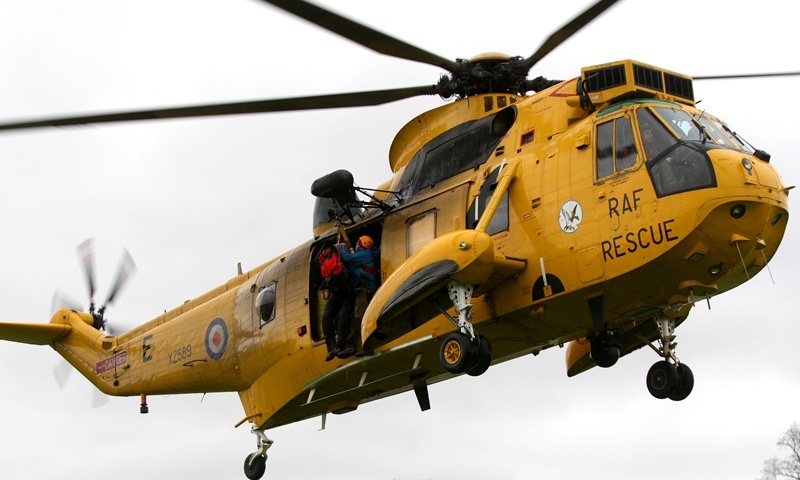Whenever “saving lives” and “saving money” are mentioned in the same breath I get distinctly uncomfortable, which is why the plan to privatise search and rescue SAR leaves me a bit uneasy.
There has been an e-petition running on this for some time.
The argument is persuasive. It appeals to all of us who go hillwalking, climbing, mountain biking, canoeing, sailing, and for those who work in places where ambulances can’t go to ask ourselves this question: “You wouldn’t dream of letting the Government privatise ambulances, so why accept them privatising SAR?”
There is an answer and it is about money, in the shape of new kit and paying the people to use it.
The familiar fleet of yellow RAF and grey and red Royal Navy Sea King helicopters are on their last legs. Bristow, which has been awarded the £1.6 billion contract to do the job, plan to bring in newer, faster helicopters.
But for those who venture into the hills and take to the water it is not entirely about the performance stats of the latest chopper, it is about the people who fly them.
Many moons ago as a sprog reporter I was sent off to write a series on search and rescue for The Courier.
I spent days with Wessex crews from RAF Leuchars, Sea King crews from RAF Lossiemouth and those who flew and manned the Nimrods at RAF Kinloss.
It was my privilege to meet men who routinely risked their lives to save others.
One story I heard involved a winchman from Leuchars who threw himself out of a Wessex helicopter as it approached the scene of an upturned boat to save someone from drowning.
Another involved plucking stricken climbers off a rock face, the blades of the helicopter coming within inches of the cliff and certain catastrophe.
They wouldn’t like the term ‘hero’, but what they did was often truly heroic.
Whether civilian rescuers bound by health and safety constraints, performance indicators and financial constraints will feel able to take that extra step which so often has saved a life remains to be seen.
